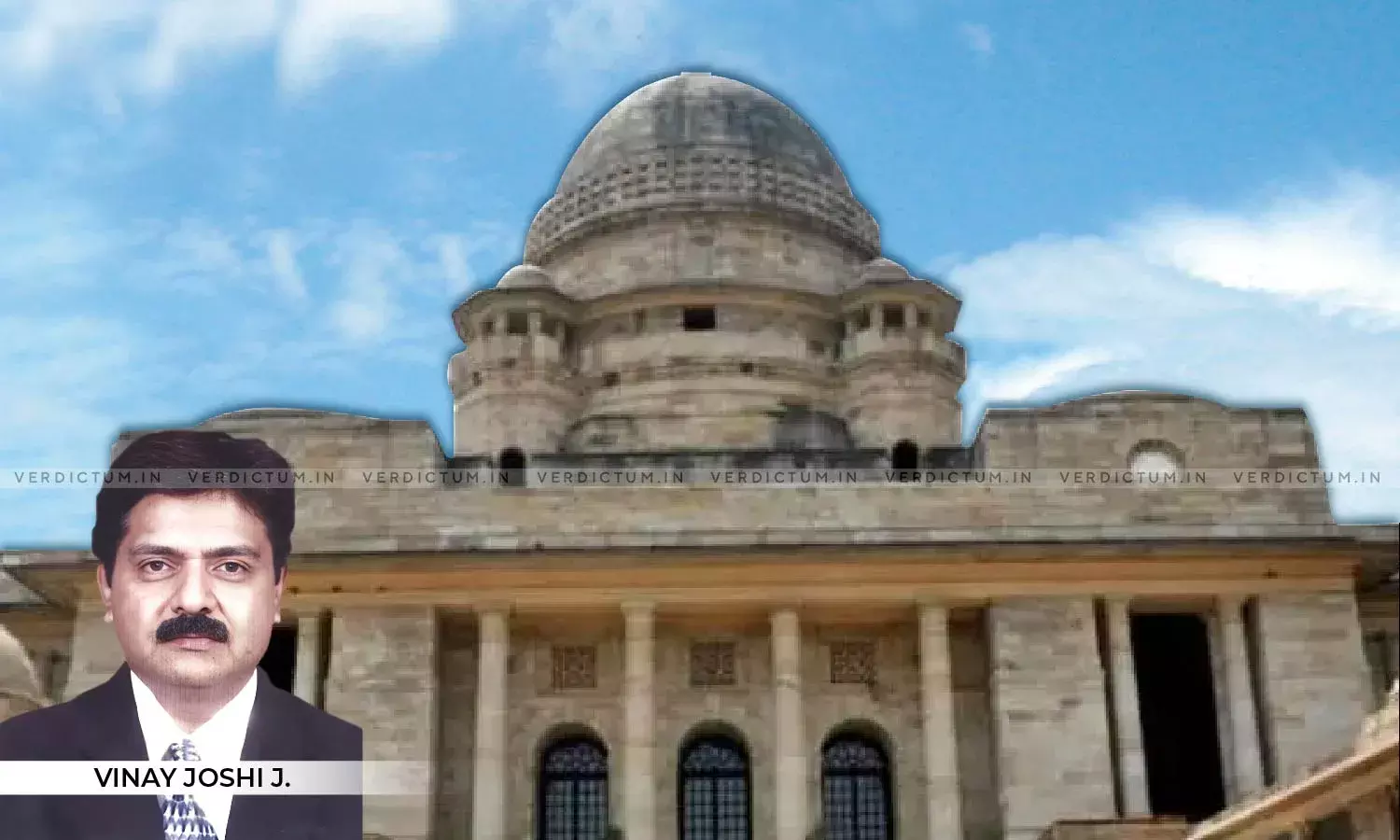Casual Absence Of Defendant On An Inconsequential Date Would Not Render Decision Of Court 'Ex-Parte'- Bombay HC

The Bombay High Court, Nagpur held that a casual absence of the defendant on any inconsequential date would not make a decision of the Court 'ex-parte', the consequence of the absence of a defendant had to be considered.
The Bench of Justice Vinay Joshi observed that "The defendant cannot take disadvantage of his isolated absence on insignificant date to state that the order was ex-parte. In order to assume the character of ex-parte, there must be absence of defendant at the time of hearing, meaning thereby in his absence the Court has proceeded in passing the decree. In short, defendant's voluntary act of not cross examining the party and not advancing arguments, is not capable enough to term the order as 'ex-parte'."
In this case, the Court was dealing with a batch of writ petitions preferred against the order of the Land Acquisition Rehabilitation and Resettlement Authority (Second Authority) whereby the Reference order passed by the First Authority, enhancing the amount of compensation was set aside on the ground that the order was ex-parte decision amenable to set aside under Order IX Rule 13 of the Civil Procedure Code (the Code).
The petitioner's lands were acquired by the Railways (respondent) for Wardha to Nanded Rail Project. The petitioners were dissatisfied with the compensation, made reference under section 64 of the Land Acquisition, Rehabilitation and Resettlement Act, 2013 ('the Act of 2013').
The Issue dealt with was whether the Reference order passed could be treated as an ex-parte to invoke the provisions of Order IX Rule 13 of the Code.
Advocate P.V. Ganediwala for the petitioners contended that the order was purely passed on merits as written statements were filed, evidence affidavits were also filed and moreover, submissions of both the sides were also heard. Therefore, provisions of Order IX Rule 13 would not apply.
Deputy Solicitor General of India N.S. Deshpande, appeared for the respondent and submitted that Advocate Sawarkar was absent on the date of hearing and therefore, order assumed a character of ex-parte as he was prevented by sufficient cause from appearing. Hence, the provisions of Order IX Rule 13 of the Code would apply. It was also submitted that in terms of Section 60(3) of the Act of 2013, the Authority was not bound by the Code but can regulate its own procedure while dealing with the matter.
The Court noted that the on date when the advocate for Railways was not present, the matter was adjourned for final arguments meaning it was an inconsequential date and said that "One has to see as to what was the consequence of defendant's absence on particular date. "
The Court observed that "if Advocate Sawarkar has any grievance that he was not heard, he could have approached to the First Authority, having sufficient time." but he never requested the First Authority for adjourning the case for his arguments. Therefore, the respondent could not take disadvantage of his complete inaction be saying that the matter proceeded ex-parte.
The Court also observed that the respondent was unable to demonstrate as to how the First Authority had acted in defiance with the rules of natural justice and said that "Undoubtedly, one must get a right of hearing but one cannot be compelled to exercise said right. The entire proceeding shows that on each and every stage, the respondent was present before the First Authority, partook in the proceeding and voluntarily abstained from cross-examining the rival. In civil cases one cannot be compelled to do those things. Obviously, if the respondent himself chooses not to exercise his valuable right of cross-examination and advance arguments, then it is not open for him to say that the Authority has not followed the Rules of natural justice."
Further, the Court observed that "The provisions of Order IX Rule 13 of the Code have been introduced to remedied the situation where the defendant is absent meaning thereby the cause was decided in his absence. It is for the reason that, there is no contest due to absence of defendant at the time of hearing. Even if written statement is filed but the defendant remains absent throughout till adjudication then certainly the decision can be termed as an 'ex-parte', however a casual absence of defendant on any intermediate date would not suffice to treat the decision ex-parte."
Therefore, the Court held that the Second Authority had committed a serious error in holding that the order was ex-parte. Since, Order IX Rule 13 of the Code was not applicable, the same Authority has no power to set aside its own order and that the challenge on merits would squarely fall within the competence of the Appellate Forum and not to the same Authority.
Accordingly, the petitions were allowed and the order of the Second Authority was quashed.
Cause Title- Jyoti v. Deputy Chief Engineer (Construction), Central Railway
Click here to read/download the Judgment

